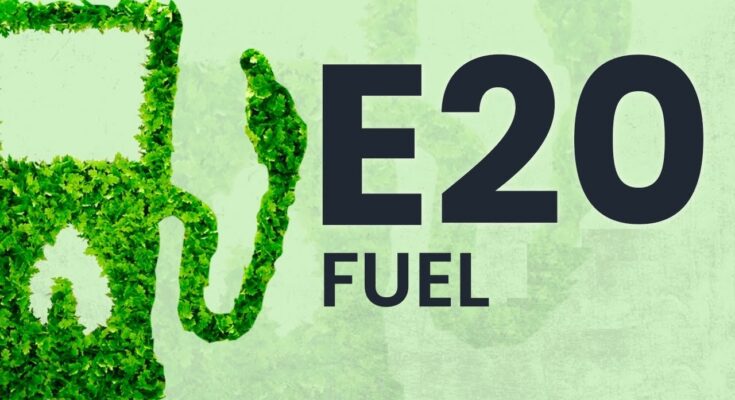E20 petrol, also known as the 20% ethanol blend, is a mixture of 20% ethanol and 80% unleaded petrol. This alternative fuel has been introduced in India as a measure to reduce the country’s dependence on imported fossil fuels and promote sustainable energy practices. However, the use of E20 petrol may affect your vehicle in several ways. In this article, we will discuss what E20 petrol is and how it will impact your vehicle.
Ethanol is a biofuel that is made from corn, sugar cane, and other agricultural products. The use of ethanol as a fuel has become increasingly popular due to its renewable nature and its ability to reduce greenhouse gas emissions.
Advantages of E20 Petrol
- Environmentally Friendly: E20 petrol reduces greenhouse gas emissions and is considered a cleaner fuel as compared to regular gasoline. This is because the production of ethanol generates fewer emissions than that of traditional gasoline.
- Renewable Resource: Ethanol, the main component of E20 petrol, is a renewable resource that can be produced from crops such as sugarcane, corn, and wheat. This makes E20 petrol a sustainable alternative to traditional gasoline.
- Lower Fuel Costs: The production of ethanol is much cheaper than that of gasoline, which translates to lower fuel costs for consumers.
- Improved Engine Performance: E20 petrol has been proven to improve engine performance, resulting in better fuel efficiency and reduced emissions.
Disadvantages of E20 Petrol
- Reduced Mileage: E20 petrol has a lower energy content as compared to regular gasoline. This results in a reduction in fuel efficiency and mileage, meaning you may need to refuel more frequently.
- Compatibility Issues: E20 petrol is not compatible with all vehicles, particularly older models. It is important to check with your vehicle manufacturer to ensure compatibility before making the switch.
- Availability: Despite being introduced in India, E20 petrol is not yet widely available in the country. This may be a challenge for those who live in remote areas.
- Higher Maintenance Costs: E20 petrol may cause damage to some vehicle components over time. This could result in higher maintenance costs and the need for frequent repairs.
E20 petrol in India
You can say E20 is an alternate of petrol. E20 is a new fuel option that is becoming increasingly popular in the United States and other countries. With the ever-increasing need to conserve the environment and reduce greenhouse gas emissions, the Indian government has taken a major step forward by introducing E20 petrol. Government has launched in 15 cities in India.
Old vehicles are compatible with E20 petrol?
However, it is important to note that not all vehicles are compatible with E20 petrol. Some older vehicles, particularly those that were manufactured before the year 2000, may not be able to handle the higher octane rating of E20 petrol. In these cases, using E20 petrol could cause damage to your vehicle, such as engine knocking or other performance problems.
If you’re considering switching to E20 petrol, it is important to check your owner’s manual or consult with your local mechanic to make sure that your vehicle is compatible with this fuel blend. Additionally, it is important to keep in mind that some newer vehicles may require regular maintenance or tune-ups to ensure that they are able to perform optimally when using E20 petrol.
In conclusion, E20 petrol is a promising alternative fuel that offers several advantages, including a reduction in greenhouse gas emissions, lower fuel costs, and improved engine performance. However, there are also some disadvantages to consider, such as reduced mileage, compatibility issues, and limited availability. As with any new fuel, it is important to weigh the pros and cons before making the switch.




